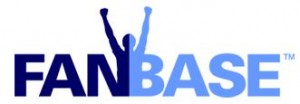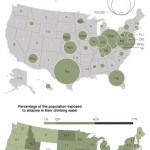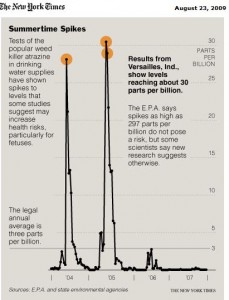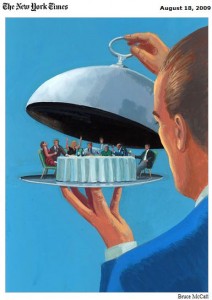Even before my own book Rethink came out, there weren’t a lot of books I recommended. In fact, people who know me well know that Scott Bedbury’s A New Brand World was the only book I recommended for many years.
I have added another book to that short list, and oddly, like A New Brand World, this one also has an egg on the cover.
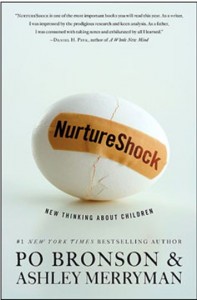 NurtureShock by Po Bronson and Ashley Merryman, a book that is just coming out now, takes several basic notions of parenting, and blows them out of the water with great writing, and compelling scientific research. They also use the word rethink several times, which I applaud.
NurtureShock by Po Bronson and Ashley Merryman, a book that is just coming out now, takes several basic notions of parenting, and blows them out of the water with great writing, and compelling scientific research. They also use the word rethink several times, which I applaud.
One of the things that I like about this book is that each chapter is about a very specific thing, such as how we praise a child, why teenagers argue with their parents, the impact of putting kids into highly diverse schools, and the importance of an extra hour of sleep, to name a few. In every case, the subject is introduced, and you will find yourself nodding in agreement, and then they will share with you the research data (which is heavily backed up in the final 100 pages of this book) which is often shocking, as the title suggests, and they then carefully direct you to the why the results of the research make sense and how to change your parenting skills accordingly.
Now my work, which is typically applied to business, is about getting people out of their “how” traps, the ways we all get stuck in our day-to-day ruts, as well as being specific about the outcome of “what” we are doing to make sure we are measuring them the right way. NurtureShock takes for granted that we all want to be the best parents that we can be, with the “outcome” being happy, well-adjusted kids that can leave the nest and chase after what it is that brings happiness and fulfillment to their lives.
Essentially what Bronson and Merryman are saying is that we are in a bunch of “how” traps in our parenting, not because we are stupid or have bad intentions, we just don’t realize that “how” we are doing things actually cause the opposite “outcome” of what we intend, we have simply lacked the evidence to see it so clearly. One of the most glaring examples is the chapter on praise. Lots of people have talked and even joked about how much we over praise our kids these days, but what we have lacked up until this book, was the evidence of the specific damage it causes (aversion to risk taking and trying new things) and how to correct it (greater emphasis on the effort than the outcome). Very actionable clear guidance on how to be better parents. And it’s so well written, you will fly through it.
Shock on.
-Ric
